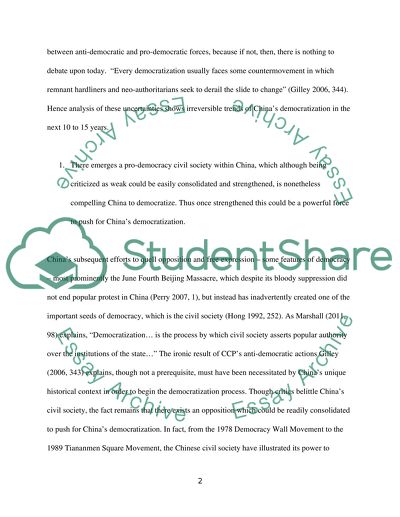Cite this document
(“China: a democracy in ten to fifteen years Essay”, n.d.)
China: a democracy in ten to fifteen years Essay. Retrieved from https://studentshare.org/history/1433738-china-a-democracy-in-ten-to-fifteen-years
China: a democracy in ten to fifteen years Essay. Retrieved from https://studentshare.org/history/1433738-china-a-democracy-in-ten-to-fifteen-years
(China: A Democracy in Ten to Fifteen Years Essay)
China: A Democracy in Ten to Fifteen Years Essay. https://studentshare.org/history/1433738-china-a-democracy-in-ten-to-fifteen-years.
China: A Democracy in Ten to Fifteen Years Essay. https://studentshare.org/history/1433738-china-a-democracy-in-ten-to-fifteen-years.
“China: A Democracy in Ten to Fifteen Years Essay”, n.d. https://studentshare.org/history/1433738-china-a-democracy-in-ten-to-fifteen-years.


